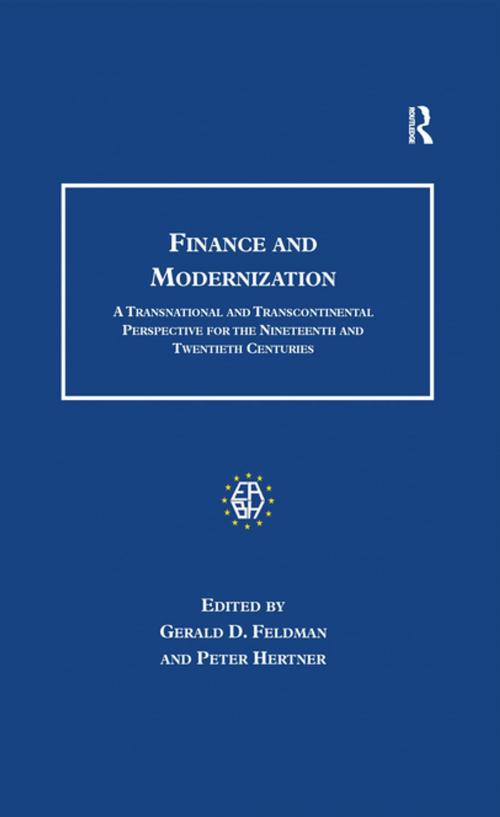Finance and Modernization
A Transnational and Transcontinental Perspective for the Nineteenth and Twentieth Centuries
Business & Finance, Economics, Economic History| Author: | Gerald D. Feldman | ISBN: | 9781351936491 |
| Publisher: | Taylor and Francis | Publication: | December 5, 2016 |
| Imprint: | Routledge | Language: | English |
| Author: | Gerald D. Feldman |
| ISBN: | 9781351936491 |
| Publisher: | Taylor and Francis |
| Publication: | December 5, 2016 |
| Imprint: | Routledge |
| Language: | English |
Finance and Modernization centres on a set of historical developments and problems typified by the long history of the Österreichische Creditanstalt and its successor organizations, and opens the way to compare and contrast experiences throughout Central and Western Europe and also on other continents. The structure of this volume reflects the changing role and nature of banks as economies become industrialized and modernized. Although banks adapt to the needs of an industrializing economy, at the same time, industrialization influences the manner in which banking systems grow and the structures which they adopt. Beginning with studies of the Austrian banks, their development and their crises, the volume then moves on to look at case studies of important aspects of financial activity - German stock markets, railroad investment, and information networks. This is followed by a section on country studies of banking modernization in Sweden, the Netherlands and Greece. Finally, the collection concludes with two chapters, one on banking in China and the other on banking in India, certainly both of intrinsic interest and of importance in an era of globalization. Professor Teichova, one of the great scholars in the field, concludes with reflections on the individual contributions and the general problems addressed in this book.
Finance and Modernization centres on a set of historical developments and problems typified by the long history of the Österreichische Creditanstalt and its successor organizations, and opens the way to compare and contrast experiences throughout Central and Western Europe and also on other continents. The structure of this volume reflects the changing role and nature of banks as economies become industrialized and modernized. Although banks adapt to the needs of an industrializing economy, at the same time, industrialization influences the manner in which banking systems grow and the structures which they adopt. Beginning with studies of the Austrian banks, their development and their crises, the volume then moves on to look at case studies of important aspects of financial activity - German stock markets, railroad investment, and information networks. This is followed by a section on country studies of banking modernization in Sweden, the Netherlands and Greece. Finally, the collection concludes with two chapters, one on banking in China and the other on banking in India, certainly both of intrinsic interest and of importance in an era of globalization. Professor Teichova, one of the great scholars in the field, concludes with reflections on the individual contributions and the general problems addressed in this book.















